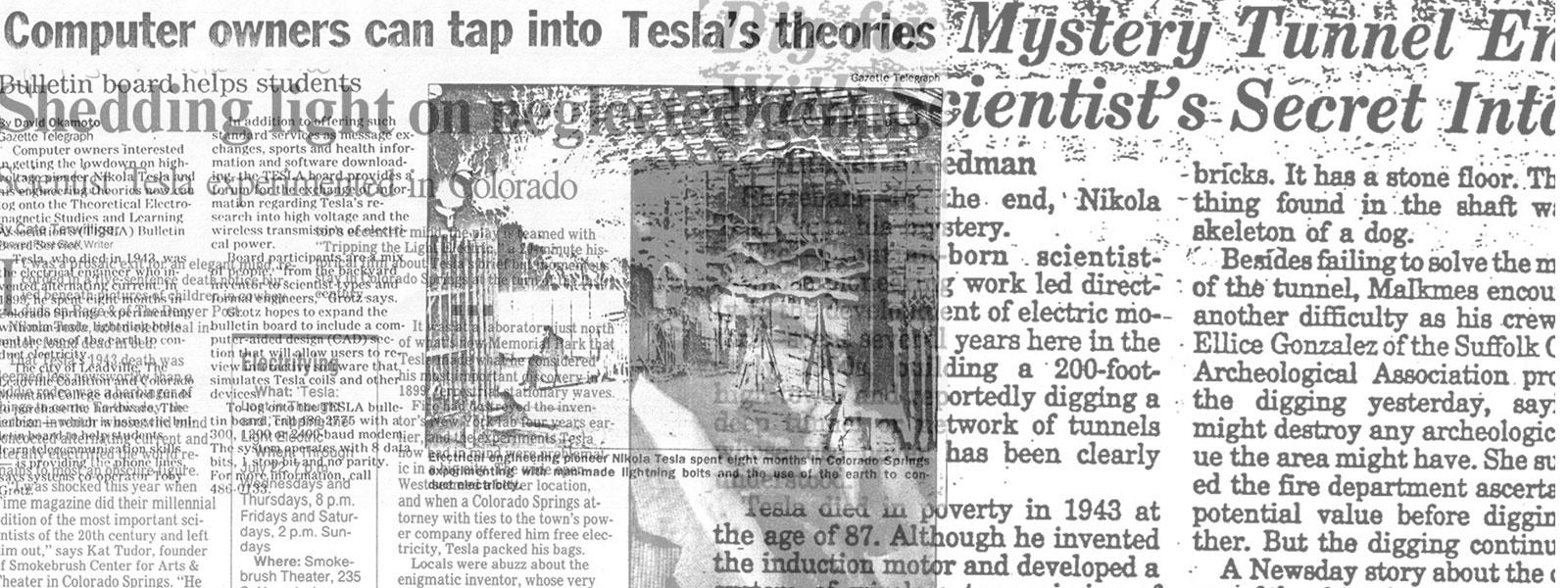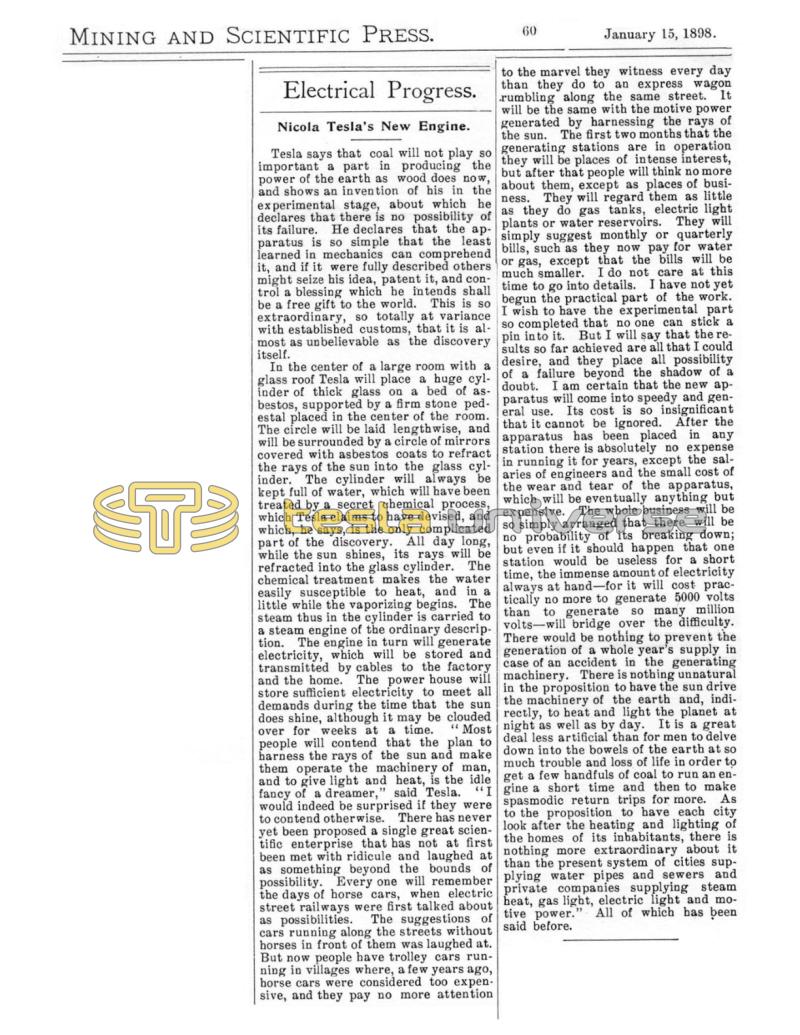
Nikola Tesla Articles
Electrical Progress - Nikola Tesla's New Engine
Tesla says that coal will not play so important a part in producing the power of the earth as wood does now, and shows an invention of his in the experimental stage, about which he declares that there is no possibility of its failure. He declares that the apparatus is so simple that the least learned in mechanics can comprehend it, and if it were fully described others might seize his idea, patent it, and control a blessing which he intends shall be a free gift to the world. This is so extraordinary, so totally at variance with established customs, that it is almost as unbelievable as the discovery itself.
In the center of a large room with a glass roof Tesla will place a huge cylinder of thick glass on a bed of asbestos, supported by a firm stone pedestal placed in the center of the room. The circle will be laid lengthwise, and will be surrounded by a circle of mirrors covered with asbestos coats to refract the rays of the sun into the glass cylinder. The cylinder will always be kept full of water, which will have been treated by a secret chemical process, which Tesla claims to have devised, and which, he says, is the only complicated part of the discovery. All day long, while the sun shines, its rays will be refracted into the glass cylinder. The chemical treatment makes the water easily susceptible to heat, and in a little while the vaporizing begins. The steam thus in the cylinder is carried to a steam engine of the ordinary description. The engine in turn will generate electricity, which will be stored and transmitted by cables to the factory and the home. The power house will store sufficient electricity to meet all demands during the time that the sun does shine, although it may be clouded over for weeks at a time. "Most people will contend that the plan to harness the rays of the sun and make them operate the machinery of man, and to give light and heat, is the idle fancy of a dreamer," said Tesla. "I would indeed be surprised if they were to contend otherwise. There has never yet been proposed a single great scientific enterprise that has not at first been met with ridicule and laughed at as something beyond the bounds of possibility. Every one will remember the days of horse cars, when electric street railways were first talked about as possibilities. The suggestions of cars running along the streets without horses in front of them was laughed at. But now people have trolley cars running in villages where, a few years ago, horse cars were considered too expensive, and they pay no more attention to the marvel they witness every day than they do to an express wagon rumbling along the same street. It will be the same with the motive power generated by harnessing the rays of the sun. The first two months that the generating stations are in operation they will be places of intense interest, but after that people will think no more about them, except as places of business. They will regard them as little as they do gas tanks, electric light plants or water reservoirs. They will simply suggest monthly or quarterly bills, such as they now pay for water or gas, except that the bills will be much smaller. I do not care at this time to go into details. I have not yet begun the practical part of the work. I wish to have the experimental part so completed that no one can stick a pin into it. But I will say that the results so far achieved are all that I could desire, and they place all possibility of a failure beyond the shadow of a doubt. I am certain that the new apparatus will come into speedy and general use. Its cost is so insignificant that it cannot be ignored. After the apparatus has been placed in any station there is absolutely no expense in running it for years, except the salaries of engineers and the small cost of the wear and tear of the apparatus, which will be eventually anything but expensive. The whole business will be so simply arranged that there will be no probability of its breaking down; but even if it should happen that one station would be useless for a short time, the immense amount of electricity always at hand - for it will cost practically no more to generate 5000 volts than to generate so many million volts - will bridge over the difficulty. There would be nothing to prevent the generation of a whole year's supply in case of an accident in the generating machinery. There is nothing unnatural in the proposition to have the sun drive the machinery of the earth and, indirectly, to heat and light the planet at night as well as by day. It is a great deal less artificial than for men to delve down into the bowels of the earth at so much trouble and loss of life in order to get a few handfuls of coal to run an engine a short time and then to make spasmodic return trips for more. As to the proposition to have each city look after the heating and lighting of the homes of its inhabitants, there is nothing more extraordinary about it than the present system of cities supplying water pipes and sewers and private companies supplying steam heat, gas light, electric light and motive power." All of which has been said before.
